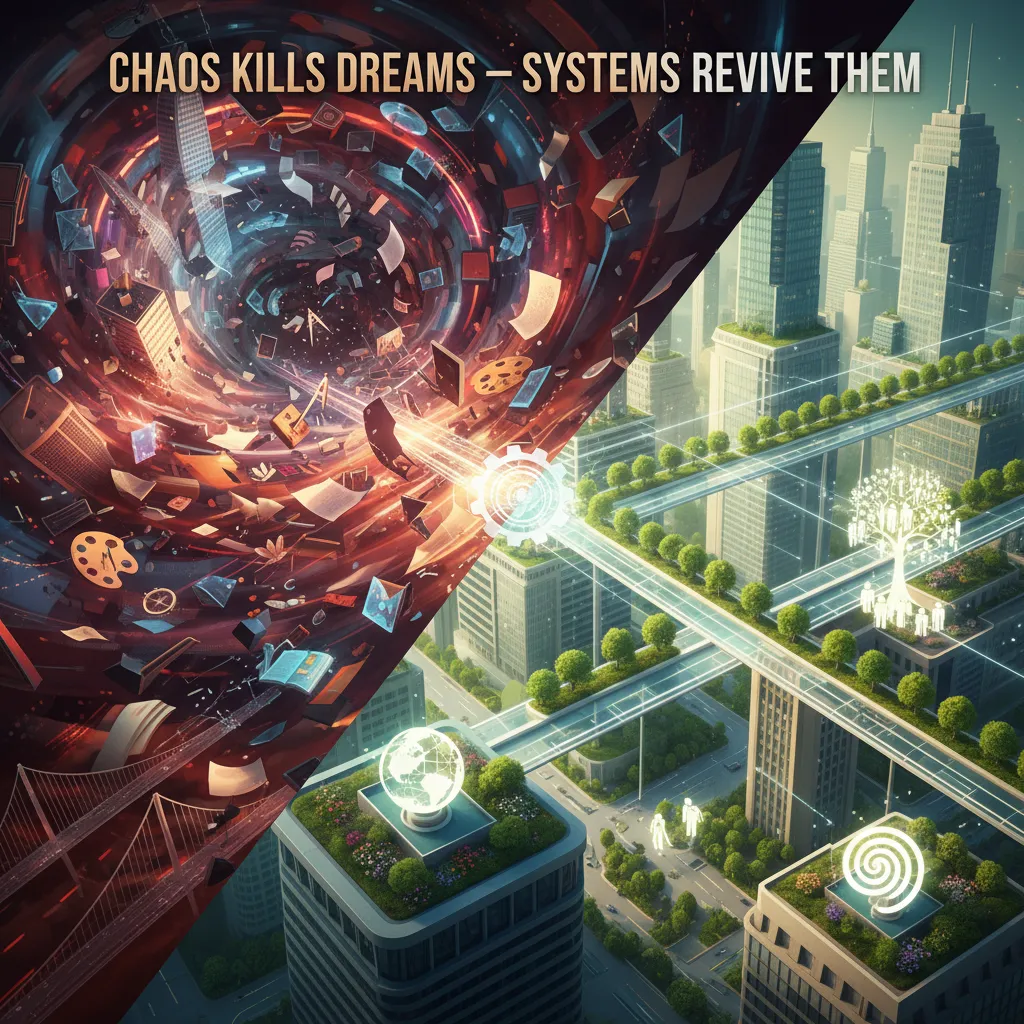Let’s be honest: I didn’t just stumble into unemployment; I swan-dived headfirst. My bank account was gasping for air, bills were circling like sharks, and the civilian world was not exactly handing out floaties. However, I emerged with a strong determination to create something more meaningful than melancholic sandwiches and anxiety. That’s where the magic of (gasp) structure, OfferLab’s process, and a dash of AI wizardry changed the game—for good. Here’s what really happened when I bet on systems over stress.
Confession Time: When Unemployment Anxiety Throws the First Punch
Let’s get brutally honest, veteran-to-veteran: the post-military cliff is real, and it’s steeper than a PT hill after chow. The day those steady Army checks stopped and the civilian world greeted me with what I thought were open arms (spoiler: they were open jaws), I learned exactly how fast unemployment anxiety can hit. Financially and emotionally, it’s like jumping out of a C-130 with no chute—except the ground is made of overdue bills, and your self-confidence is the first thing to splatter.
Here’s the play-by-play: You log into your bank app, see two digits staring back, and whisper,
“Man… I really risked my life for this?”
That’s not just a punchline; that’s Tuesday. Watching your bank balance and your self-worth race to the bottom is a sport nobody wants to play, but unemployment makes you a competitor whether you’re ready or not.
Every bill turned into a boss fight. Is the electricity bill the final boss? Final boss. Internet? The internet was a mini-boss with a grudge. My utilities were hanging on harder than a desperate Tinder match after midnight—clinging for dear life, hoping I’d swipe right on “Pay Now.” And let's not even discuss the water bill. I started showering like I was back in the field: fast, cold, and with a sense of existential dread.
Unemployment as a veteran entails a unique blend of feelings such as panic, isolation, and identity crisis. You go from being “Sergeant Somebody” to “That Guy Who Can’t Even Pay His Wi-Fi.” It's an exhilarating journey. I used to joke that military paydays felt like a countdown to being broke, but at least they provided some income. Now, it was just me, my shrinking funds, and the kind of stress that makes you question every life choice since MEPS.
Let’s be real: most people don’t fail to start a veteran online business because the work is hard. They fail because the chaos gets them first. When you’re drowning in unemployment anxiety, even simple stuff—like paying a bill or replying to an email—feels like a mission you’re not equipped for. The lack of structure hits harder than a surprise PT test. Suddenly, you’re missing the accountability, the routine, and even the crusty old NCOs who made sure you didn’t forget your weapon (or your rent).
Here’s a personal anecdote for you: I remember sitting at my kitchen table, staring at a stack of bills, and thinking, “If I treat these like a field op, maybe I’ll survive.” Spoiler alert: there’s no SOP for adulting when you’re broke. I began color-coding my bills as if devising a strategic battle plan, but ultimately, it merely rendered my financial setbacks more systematically arranged. My utilities were the only thing more loyal than my ex—at least they stuck around for a few extra days before ghosting me.
That’s the unique flavor of stress management systems you need as a veteran. The civilian world doesn’t hand you a checklist. It hands you chaos and says, “Figure it out.” And if you don’t have a system, that chaos will chew you up before you ever get to build anything. That’s why, for me, every day unemployed felt like a new boss fight—except the only loot drop was another late fee.

Chaos Kills Dreams—Systems Revive Them
Let’s get one thing straight: most entrepreneurs don’t fail because they’re lazy or allergic to hard work. If that were true, half the veterans I know would be out of business before their first VA appointment. No, the real killer is chaos. Disorganization. That feeling of spinning your wheels so hard you could power a small city but going absolutely nowhere. Trust me, I’ve been there—unemployed, broke, and building a “business” that looked more like a stress management experiment gone wrong.
Why Chaos Eats Hard Work for Breakfast
I used to think if I just worked harder, I’d break through. More late nights, more coffee, more YouTube tutorials. I was working so hard that my stress levels increased significantly. But here’s the ugly truth: chaos chews up hard work and spits it out. You can outwork many things, but you can’t outwork a lack of structure. My “plan” was basically a sticky note and a prayer. Spoiler: that’s not a system for entrepreneurs—it’s a recipe for burnout and zero sales.
Winging It: A Masterclass in Getting Nowhere
For months, I tried to wing it. I’d wake up, stare at my laptop, and ask myself, “What’s the most urgent fire to put out today?” Funnels? Overwhelming. Content? Brain freeze. Filming myself? Only if you were interested in witnessing a mature man perspiring through a t-shirt would you consider it. My business was a mess of half-finished projects and zero traction. I was putting in a lot of effort, but my approach was ineffective. Stress management systems? My approach consisted of panicking and relying on luck.
The Quote That Flipped My Switch
“You don’t have a business problem. You have a systems problem.”
— Russell Brunson
That quote hit me harder than a surprise PT test. I didn’t need to grind harder—I needed a blueprint. I needed a blueprint that could transform my chaos into clarity. That’s when it clicked: structured business growth isn’t about doing more; it’s about doing the right things in the right order. Winging it was just giving me more stress and fewer sales. I needed a system, not another motivational quote.
Evidence: Lack of Structure, Not Laziness, Keeps Us Stuck
Look, I know plenty of people who put in a lot of effort but still fail to achieve their goals. It’s not because they’re lazy—it’s because their “strategy” is just a to-do list with no direction. I was one of them. My days were a blur of activity, but my bank account didn’t notice. The more I hustled without a plan, the more overwhelmed I got. That’s when I realized: chaos kills dreams long before lack of effort does.
Hard work without systems = burnout and disappointment.
Systems for entrepreneurs = clarity, progress, and actual results.
Stress management systems = less panic, more progress.
If you find yourself stuck, it's likely not due to a lack of effort. It’s because you’re trying to build a house during a hurricane—no blueprint, just hope and a hammer. Systems revive dreams by turning chaos into a process you can actually follow. And once I embraced that, the game changed. No more winging it. No more stress-induced staring contests with my bank app. Just structured steps, real progress, and a business that finally started to work.

OfferLab Certification: My Tactical Blueprint (Not a Miracle, But Close)
Let’s get one thing straight: OfferLab Certification didn’t show up with a magic wand and a unicorn. It showed up with a wrench, a blueprint, and a fierce stare that said, “You ready to stop screwing around?” And honestly, that’s precisely what I needed. I didn’t want another “get-rich-quick” fairy tale—I wanted a structured business growth plan that didn’t require me to sell my soul, my sanity, or my last can of Monster.
Actionable Frameworks—Not Fairy Dust
I was done with vague advice like “just hustle harder” or “believe in yourself.” Brother, I believed in myself right through overdraft fees. What OfferLab gave me was a repeatable, step-by-step system—the kind of system that doesn’t care if you’re running on caffeine and anxiety. It's important if you follow the damn steps.
Messaging frameworks that made my offer sound less like a desperate Craigslist ad and more like something people actually want.
Offer-building systems that walked me through what to say, how to say it, and when to say it—no guesswork required.
Online funnel templates that didn’t look like I built them during a blackout. (Seriously, some of my early attempts looked like a PowerPoint from 2003.)
Accountability—because let’s face it, left to my own devices, I’d be “researching” on YouTube until the end of time.
Why Systems Beat Hustle (And Lower Your Blood Pressure)
Here’s the wild part: Structure actually lowered my stress. I stopped waking up with that “I forgot my rifle” panic. Instead, I had a checklist. A process. This method allowed me to transform the chaos into a state of clarity. As I like to say:
"I finally wasn’t just doing stuff. I was doing the right stuff in the right order."
That’s not just a charming quote—it’s the difference between spinning your wheels and actually moving the truck. When you’re unemployed and broke, every ounce of energy counts. OfferLab's system ensured that I wasn't squandering my energy on pointless tasks.
Templates, Accountability, and the Power of Not Going Alone
Let’s talk about the veteran accountability piece. OfferLab doesn’t just hand you a PDF and wish you luck. There’s a built-in “hard-nosed buddy” effect—someone to call you out when you’re slacking and to high-five you (virtually) when you actually ship something. It’s like having a squad leader for your business, minus the 4am wakeups.
And those online funnel templates? Absolute game-changers. Instead of spending hours Googling “how to build a funnel that doesn’t suck,” I was plugging my offer into proven layouts. No more tech headaches, no more design disasters—just systems that work.
From Chaos to Clarity: The Real Miracle
Look, I’m not saying OfferLab Certification is a miracle. But when you're facing unemployment and only have stress, it's about as close as you get. The real magic? Consistent output, less anxiety, and a business that actually grows—because I finally had a tactical blueprint, not just a pile of good intentions.
OfferLab didn’t require me to be a genius. It just required me to follow a system. And that, my friend, is how you go from broke and overwhelmed to building something real—one step, one template, one stress-free day at a time.

Enter the AI Twin: My Secret Weapon Against Camera Nerves (and Laziness)
Let’s get brutally honest for a second. When you’re broke, unemployed, and running on stress fumes, the last thing you want to do is fire up your phone camera and record a video pitch. This is especially true when you appear as if you've just lost a wrestling match with your own anxiety. That’s where my AI twin—my digital doppelganger—became my secret weapon in this AI automation business journey.
What the Heck Is an AI Twin, and Why Did I Build One?
Picture this: a virtual version of me who never gets exhausted, never forgets a line, and—unlike the real me—never looks like he just crawled out of a barracks bunk at 0500. That’s my AI twin. It’s basically an AI-powered avatar that can create video content in my voice, with my face, and (let’s be honest) with a lot less flop sweat. I built him because, after months of unemployment stress, I realized my greatest obstacle wasn’t technical—it was psychological. I hated being on camera. I’d rather binge reruns of “Band of Brothers” than record another take of my sales pitch.
“AI literally removed my #1 excuse for not making video content: ‘I don’t feel like being on camera today.’”
Why My Digital Doppelganger Makes Videos While I’m Binging Reruns
Here’s the deal: AI video creation isn’t just about looking pretty on screen. It’s about consistency. When I’m too stressed, too tired, or just plain lazy, my AI twin steps up. He delivers my message, pitches my offer, and keeps my business moving—even if I’m hiding under a weighted blanket. If AI could do PT for me next, I’d retire tomorrow and let my digital self take over all the morning formations.
Never camera-shy: My AI twin doesn’t care if I’m having a terrible hair day or if I sound like I swallowed gravel.
Never forgets a pitch: He nails the script every time—no “ummms,” no “wait, let me start over.”
Never gets nervous: Zero flop sweat. Zero panic. Just pure, automated accountability for veterans like me who need a little nudge (or a digital boot) to get things done.
Efficiency Boost: AI Twin Never Sweats, Never Stumbles, Never Forgets
Let’s talk about AI automation business for a second. Automating repetitive tasks with AI frees up brain space and reduces stress—especially when it comes to content creation. My AI twin doesn’t just make videos; he makes my life easier. He’s the battle buddy who never flakes, never complains, and never asks to swap duty shifts. Combined with the systems I learned in OfferLab, my AI twin keeps my business rolling, even when my energy is somewhere between “empty” and “AWOL.”
Honestly, my AI twin is cooler than me. He’s always camera-ready, always on message, and—unlike me—never needs a coffee IV to function. If the Army could’ve cloned me for PT, they would’ve. Now, AI did it first. And thanks to systemized processes, those videos aren’t just floating in the digital void—they’re working, building, and selling for me 24/7.
So, if you’re a veteran (or just a fellow human) who hates the camera, hates the grind, and needs accountability for veterans in your business, let me tell you: the AI twin is your new best friend. He never calls in sick, never loses his nerve, and never, ever forgets the mission.
From Sinking to Swimming: Stress Becomes Structure, and Structure Becomes Survival
Let's be clear: I didn't inadvertently stumble into structured business growth because I possess exceptional entrepreneurial skills. I arrived at this point because I was fed up with stress controlling my life like a tyrannical drill sergeant. When you’re unemployed, broke, and staring down utility bills like they’re enemy combatants, you don’t have the luxury of “winging it.” You need a system—a real, battle-tested stress management system that keeps you afloat when everything else is trying to pull you under.
For me, systems became my flotation device. It wasn't just a fancy bonus or a "nice-to-have"; it was the one that kept me afloat when the financial downturn threatened to overwhelm me. I used to wake up in a cold sweat, wondering if the lights would still be on or if my Wi-Fi would vanish mid-Zoom call. Now? I wake up to see my AI twin has been hustling all night, cranking out videos while I drool on my pillow. That’s not just business automation—that’s survival with style.
Here’s the thing nobody tells you: Turning panic into process doesn’t just save your business. It gives you your life back. When you’re running on chaos, every day feels like a new crisis. But when you’ve got a system—thanks, OfferLab—you’re not just reacting. You’re executing. Instead of stumbling aimlessly, you're making progress. My stress didn’t disappear, but it got demoted from “mission critical” to “background noise.” As I like to say, “Systems don’t eliminate the work. They eliminate the weight of the work.”
And let’s talk about AI for a second. My AI twin isn’t just a gimmick; he’s my digital manpower. He doesn’t get tired, he doesn’t complain, and he sure as hell doesn’t need coffee. While I’m catching up on sleep (or, let’s be honest, stress-eating Pop-Tarts), he’s out there making content, building my veteran online business, and keeping the engine running. It’s like having a battle buddy who never needs a sick day.
The real magic? This cycle never stops. I set up the systems, the systems keep the business moving, and the AI keeps the content flowing. Even on days when my confidence is MIA and the only thing I want to build is a blanket fort, the process keeps things afloat. That’s the difference between barely surviving and actually building something that lasts.
Imagine a world where stress gets dishonorably discharged from every business. Imagine a world where structure is not merely a catchphrase, but rather the guide and safeguard that prevents you from sinking. That’s not just a pipe dream—it’s what happens when you stop letting chaos call the shots and start letting systems do the heavy lifting.
So no, I’m not smarter than the next guy. I’m just done letting stress be my commanding officer. Systems became my flotation device, OfferLab my map, and AI my manpower. Now, chaos-induced panic is just extra baggage—and I’m finally swimming, not sinking. If you’re ready for real, structured business growth and a veteran approach to stress management systems, trust me: the water’s fine.



